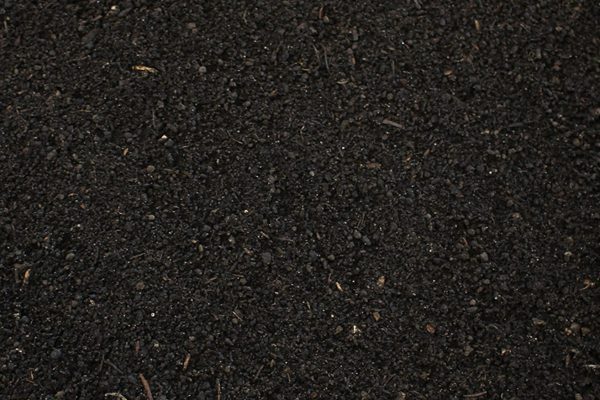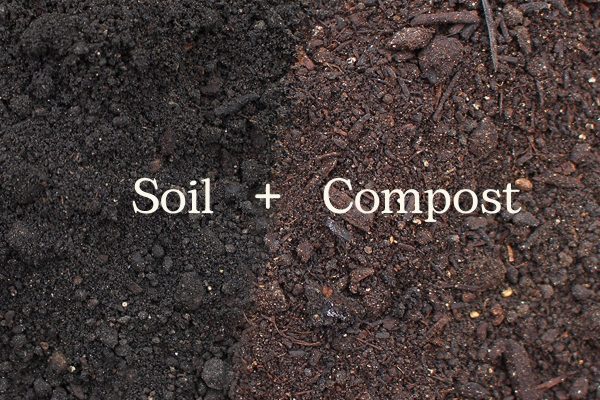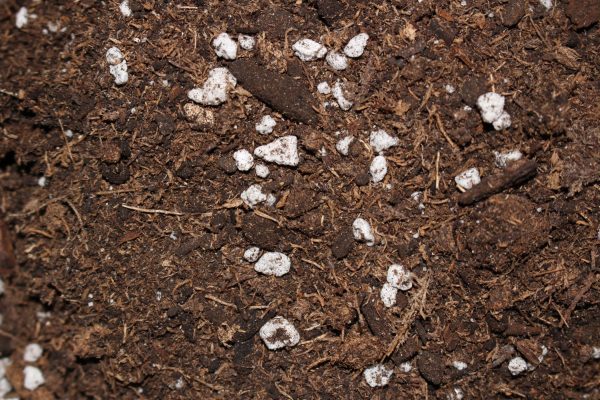Living Soils offer unmatched benefits, from healthier crops to environmental conservation.

Thriving Plants, Thriving Planet
The Benefits


Waste reduction

Nutrient enhancement
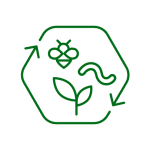
Biodiversity support
Organic Certified Compost vs. Worm Castings
While both organic certified compost and worm castings contribute to soil enrichment, they differ in nutrient content and release rates. Choosing between them depends on your specific gardening needs and preferences, with both serving as valuable allies in promoting soil health.
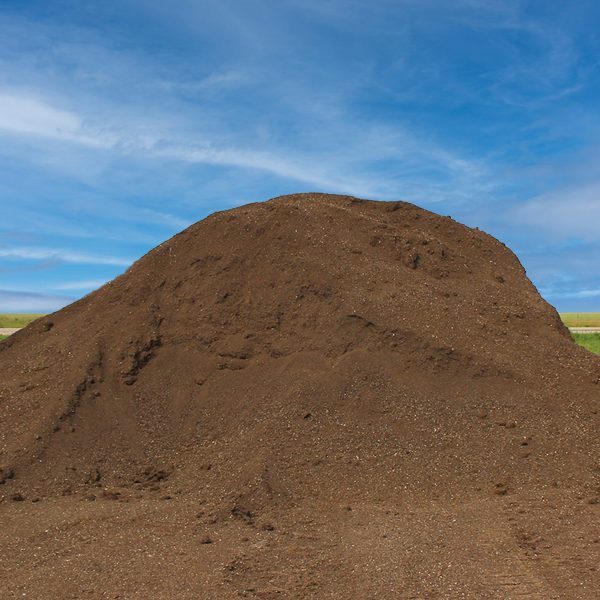
Organic Certified Compost
Collection & Processing
Our organic certified compost begins with the careful collection of source-separated organic materials from various local sources, including municipalities, residences, and businesses. Collected materials include food waste, grass, leaves, branches, and manure.
These materials are then processed through controlled decomposition, optimizing nitrogen-to-carbon ratios and moisture content. Regular turning promotes beneficial microorganisms, reduces odors, and ensures high temperatures for seed and pathogen elimination.
After reaching maturity, compost undergoes rigorous lab testing for certification, complying with regulations. This process takes up to two years, resulting in a premium soil-enriching product.
Benefits
Our compost acts as a natural shield against plant diseases and enhances the overall structure of your soil. It improves soil aeration, drainage, and water retention, creating an ideal environment for plant growth. Additionally, our compost strengthens plant resilience, making them better equipped to withstand challenging conditions like heat, drought, and pests. Beyond its garden benefits, composting plays a crucial role in reducing landfill waste and cutting greenhouse gas emissions, contributing to a greener and more sustainable planet.
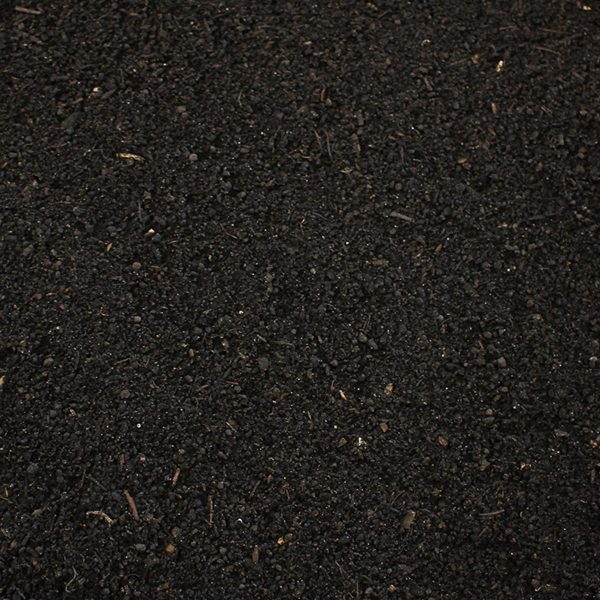
Worm Castings
Production Process
We utilize red wiggler worms in a method called vermicomposting. These worms are introduced into a bedding made from leaves or shredded cardboard, where they nest and feed on organic certified compost. As they digest this compost, they produce nutrient-rich droppings, which are carefully harvested and screened to remove any debris. The result is a premium soil amendment – worm castings – that undergoes a double refinement process to ensure its exceptional quality and effectiveness in nourishing your soil.
Benefits
Our worm castings are a powerhouse of nutrients for your soil. With a neutral pH of 7.0, they provide an ideal environment for plants to thrive. These castings introduce a multitude of beneficial microbes, bacteria, and fungi to your soil, creating a vibrant and balanced ecosystem. They are rich in essential elements such as nitrogen, phosphorus, potassium, iron, calcium, sulfur, and more, ensuring your plants get the nutrition they need. Additionally, castings contain humic acid, facilitating efficient nutrient absorption. You’ll appreciate that our worm castings are odorless and slow-release, making them practically foolproof to use – it’s challenging to overapply them. Furthermore, by choosing worm castings, you’re contributing to environmental sustainability by reducing landfill waste and aiding in toxin removal from the soil.
The Differences
Compost and worm castings, while both beneficial for soil, exhibit distinct characteristics that cater to different gardening requirements. Organic certified compost, a slow-release fertilizer, boasts a comprehensive range of nutrients derived from the decomposition of various organic materials. It nourishes the soil over an extended period, making it ideal for long-term soil improvement. In contrast, worm castings offer quicker nutrient availability and contain a higher concentration of essential elements like nitrogen, phosphorus, and potassium (N-P-K). These castings serve as a fast-acting organic fertilizer, making them suitable for addressing immediate nutrient needs in gardens and potted plants. The choice between the two depends on your specific gardening goals and the timing of nutrient application, with both compost and worm castings playing valuable roles in enhancing soil fertility.
Soil vs. Dirt
Soil is a vibrant living ecosystem, teeming with diverse organisms, both visible and microscopic. These soil microorganisms are the foundation of soil health and fertility.
On the other hand, the term “dirt” refers to degraded, lifeless soil that can no longer sustain a thriving ecosystem. Unlike soil, dirt has lost its ability to provide crucial soil ecosystem services such as nutrient cycling, water filtration, erosion prevention, and carbon sequestration.
The modern agricultural practices that rely on synthetic herbicides, pesticides, and heavy machinery is often the result of severely damaged soil microbiota. These practices have led to the prevalence of “dead dirt” incapable of carbon sequestration.
Organic compost can play a pivotal role in reversing this trend by reintroducing beneficial microorganisms and nutrients to help restore dirt back to healthy soils.
Soil microorganisms play a crucial role in carbon sequestration, plant nutrition, and overall soil vitality, making them essential components of a healthy, living soil ecosystem.
Environmental Challenges
One of the prevailing challenges in the realm of organic compost and soil management is the persistent confusion between compost and soil, which has led to the undervaluation of compost as a natural organic fertilizer. While the benefits of compost are widely recognized, particularly its capacity to enhance soil health and fertility, there remains a degree of skepticism, especially in the context of food production. Concerns regarding potential contamination often overshadow its merits, prompting a selective approach towards source-separated materials in compost production. This selectivity reflects a commitment to ensuring the highest quality of compost while addressing environmental and health concerns.
Carbon Sequestration
Carbon sequestration holds a pivotal role in mitigating climate change and promoting soil regeneration. To understand this process, it’s essential to recognize that only living soil has the capability to sequester carbon effectively.
Tilling, in particular, releases carbon dioxide (CO2) emissions into the atmosphere and disrupts the intricate web of soil microorganisms. Fungi, essential for carbon storage, are particularly vulnerable to disturbances through practices like tilling or the use of agricultural chemicals. Synthetic herbicides, pesticides, fumigants, and synthetic fertilizers further exacerbate the issue by indiscriminately eradicating beneficial soil microorganisms. These detrimental practices result in the degradation of soil, rendering it incapable of carbon sequestration.
Only regenerative practices, such as organic, ecological, and no-till farming, offer a genuine opportunity to harness the carbon-sequestering capabilities of living soil. These practices enable the soil to function as a carbon pump, sequestering carbon for extended periods and actively contributing to climate change mitigation.
Our Products
We offer a diverse range of soil amendments to cater to your gardening needs. Our products are used by garden centers, home gardeners, landscapers, greenhouses and organic agricultural farmers, and municipal entities.
Interested in breeding your own?
Create your own castings with our worms and use them for your potted garden plants and have all the same benefits.

